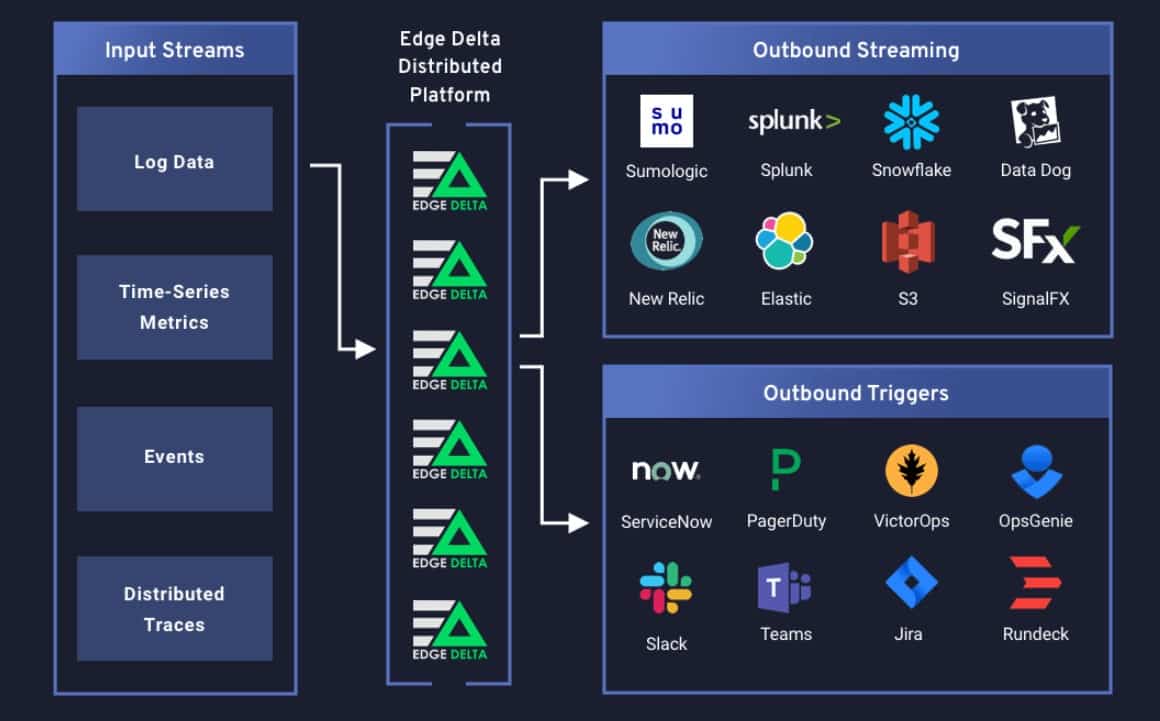It was announced that Edge Delta raises a Series A round of $15 million. The Seattle-based company is a startup building a modern distributed monitoring stack. This is competing directly with industry heavyweights like Splunk, New Relic, and Datadog. The Series A funding round was led by Menlo Ventures and Tim Tully, the former CTO of Splunk. Previous investors MaC Venture Capital and Amity Ventures also participated in this round. This brings the company’s total funding to date to $18 million.
Our thesis is that there’s no way that enterprises today can continue to analyze all their data in real time. The way that it was traditionally done with these primitive, centralized models, there’s just too much data. It worked 10 years ago, but gigabytes turned into terabytes and now terabytes are turning into petabytes. That whole model is breaking down.
Ozan Unlu, Edge Delta’s co-founder and CEO
Business model of Edge Delta
The CEO acknowledges that traditional big data warehousing works quite well for business intelligence and analytics use cases. But that’s not real-time and also involves moving a lot of data from where it’s generated to a centralized warehouse.
The promise of Edge Delta is that it can offer all of the capabilities of this centralized model. This is achieved by allowing enterprises to analyze their logs, metrics, traces, and telemetry right at the source. Consequently, it allows them to get visibility into all of the data that’s generated there. This is in contrast to many of today’s systems. Those only provide insights into a small slice of this information.

An example of Edge Delta’s work model
While competing services tend to have agents that run on a customer’s machine. They typically just compress the data, encrypt it and then send it on to its final destination. Whereas, Edge Delta’s agent starts analyzing the data right at the local level.
For example, you want to graph error rates from your Kubernetes cluster. You don’t have to gather all of this data and send it off to your data warehouse for indexing and then graphing. With Edge Delta, you could instead have every single node draw its own graph, which Edge Delta can then combine later on. With this, Edge Delta argues, its agent is able to offer significant performance benefits, often by orders of magnitude. This also allows businesses to run their machine learning models at the edge, as well.
Conclusion
People have always been picky about where they put the workloads for many reasons, cost control being a major one. Therefore, the compute being able to move easily in a distributed way was a fascinating idea.
Edge Delta is able to offer a significantly cheaper service. This is because most of the data is handles at the edge and it doesn’t have to run a lot of computing and manage huge storage pools itself. And while the customers obviously still incur some overhead to provision this compute power, it’s still significantly less than what they would be paying for a comparable service. The company argues that it typically sees about a 90 percent improvement in the total cost of ownership compared to traditional centralized services. Edge Delta charges based on volume and it is not shy to compare its prices with Splunk’s and does so right on its pricing calculator.
The Edge Delta team plans to use the new funding to expand its team and support all of the new customers that have shown interest in the product. For that, it is building out its go-to-market and marketing teams, as well as its customer success and support teams.
